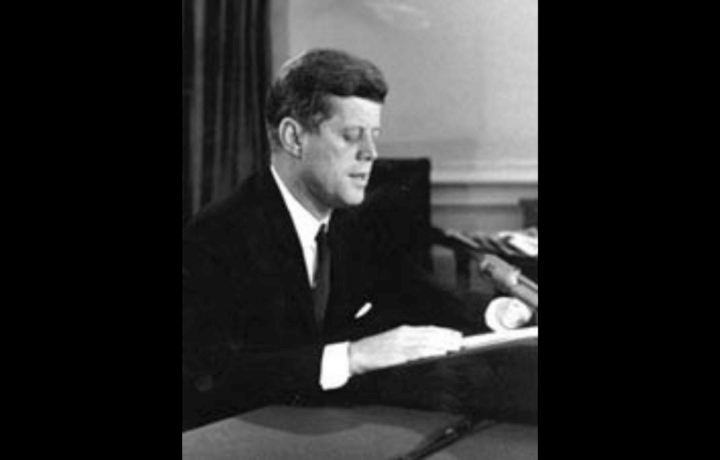On this day 58 years ago, the biggest national security story of the 20th century was about to break in real time. Missiles were in Cuba, but without Twittersphere to provide second-by-second documentation, the world continued on in ignorance.
National Security Advisor during the Cuban Missile Crisis
Robert F. Kennedy figures largely in the Cuban Missile Crisis narrative, despite the fact that as attorney general, most of his duties lay elsewhere. Adlai Stevenson was U.N. ambassador.
Early in the Cuban Missile Crisis President Kennedy made a scheduled trip to Ohio and Illinois. As the crisis worsened, the President cut his trip short – national security does not wait for politics. The Cuban Missile Crisis was happening during the final stretch of a consequential midterm election. Kennedy’s advisors believed it was best for him to keep up his schedule in order to keep public suspicion at bay. By day five, it was apparent that the crisis wasn’t going to wait. The public was told that Kennedy came home due to a cold. He held up that narrative with a “cough” on the way to the airport.
Former Presidents and a Budding Crisis
On day seven, Kennedy made a slew of phone calls. There’s no job descriptions for ex-presidents, except when they’re needed. Whether it’s a courtesy or requirement to brief ex-Presidents, it’s part of the perks of the elite club. Kennedy called Truman, Eisenhower, and Hoover, his only surviving predecessors. Additionally, he phoned the British Prime Minister Harold MacMillan, as well as his cabinet and congressional leaders, before going public later that night.
Options for resolving the Cuban Missile Crisis
Dean Rusk, Secretary of State, wanted to do an air strike, but both diplomats and military advisors opposed that option. Consensus built around a blockade, which would buy time to build a political coalition, as well as give the Soviets an opportunity to reconsider before the stakes were raised higher.
The administration was still reeling from the failed Bay of Pigs, which took the assassination option off the table.
An Hour Before the Public Announcement
An hour before showtime, Secretary of State Rusk phoned the Soviet ambassador to the United States to let him know what the President was about to tell the world. Kennedy’s speech included plans to form a “naval quarantine” (blockade) around Cuba, demanding that the missile sites be dismantled and that no missiles be shipped to Cuba. In essence, the U.S. President was choosing to share classified information with the world. Ironically, historical footage of the speech shows zero signs of an upper respiratory infection.
End of the Crisis
Fast forward to October 28, 1962. The crisis ended not with a bang but with a whimper. The missiles would leave Cuba, and the Americans would promise not to invade. Arguably, this was the hottest moment of the Cold War. The crisis reached its end, but the Cold War was far from over.




